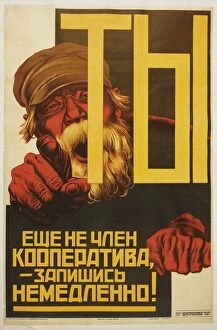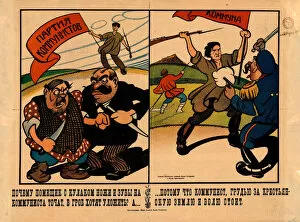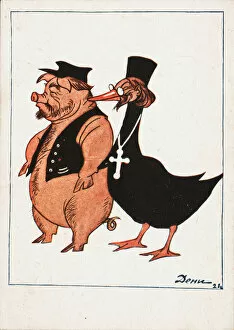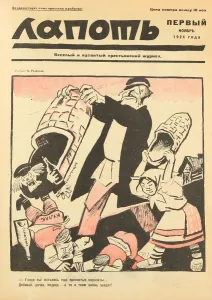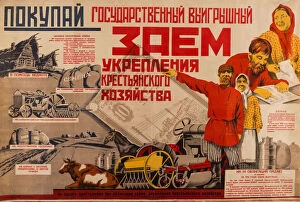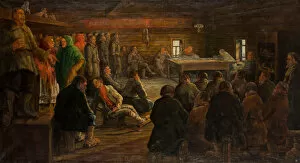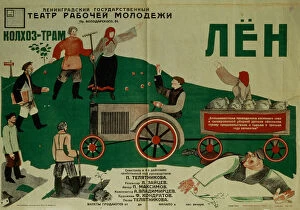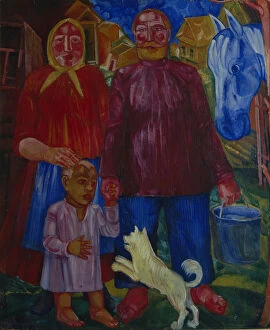Political Repression Collection
"Political Repression: Unveiling the Dark Era of Landowners and Kulaks" In the turbulent years of the early 1920s, as political tensions escalated
For sale as Licensed Images
Choose your image, Select your licence and Download the media
"Political Repression: Unveiling the Dark Era of Landowners and Kulaks" In the turbulent years of the early 1920s, as political tensions escalated, landowners and kulaks sharpened their knives and teeth in a chilling display of power. The artwork by Deni (Denisov) in 1922 depicts this ominous alliance between the wealthy landowner class and influential priests, symbolizing their shared interests against the common people. The image "Kulak-bloodsucker: What do I care about the hungry?. " from 1921 further exposes the callousness of these privileged few who showed no concern for those suffering from hunger amidst widespread poverty. Their insatiable greed became a haunting reminder of social inequality during that time. As we move into the mid-1920s, another illustration titled "The Owner" captures an atmosphere filled with disdain towards these parasitic figures. The Lapot Satirical Journal's cover art in 1924 boldly declares, "Down with the damned parasites. " reflecting public sentiment against those exploiting others' labor without remorse. Efforts to combat this oppression gained momentum as cooperative movements emerged. A poster urging immediate membership to cooperatives appeared in 1927-28 with a clear message - unity is strength against exploitation. Similarly, promoting state loans for peasant economy strengthening in 1928 aimed at empowering farmers to break free from dependency on oppressive forces. However, resistance was met with harsh consequences. The Kolkhoz Meeting held during early 1930s reveals how dissenting voices were silenced through political repression tactics employed by authorities seeking absolute control over agricultural production. Artistic expressions continued to shed light on societal struggles; Fyodor Filippovich Kondratov's theatre play poster "Flax" in 1931 portrayed hardships faced by peasants under repressive policies.

